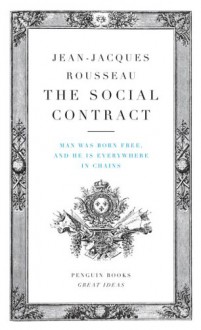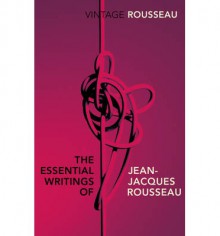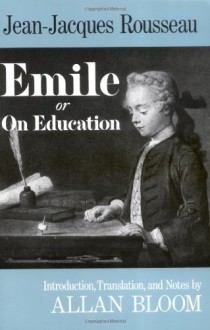
To say that Rousseau has a low opinion of humanity is an understatement – he absolute despises the corrupting nature of humans and the effect upon the world around them. This is clearly summed up in his opening statement:
God makes all things good; man meddles with them and they become evil.
Actually, Rousseau has an interesting view of reality: the world is initially good and people are free however from the moment of birth the corrupting influence of humanity comes to the fore and seeks to enslave the child - this book is a treatise on how to insulate the child from this corrupting influence and thus to create a new and evolved human through education. The problem with Rousseau is that he does not seem to recognise that human corruption is a part of their nature as opposed to something that comes about through interaction with society, and as such despite being isolated from society the child will still be corrupt. In a way it is sort of like a genetic disorder that is passed down through the parents, meaning that if the parents are corrupt then the child will inherit that corruption despite the parents attempting to insulate the child from the corrupting nature of society.
As you have probably guessed, this text (and it is a pretty long one mind you – Rousseau himself indicated in his foreword that he initially intended it to be quite short but unfortunately it blew out to beyond all proportions) is about the best way to educate a child, however it goes beyond that to theorise on how to craft and mould the child into becoming what Rousseau considered to be an enlightened human, and to do so he realises that one cannot simply isolate the child from society for there must come a time when the child will partake in society, particularly when it comes time for the child to marry. However the conclusion is the belief that if the child is educated properly, right up to and including marriage, then it will form the foundations of a new and enlightened culture as the educated child will then pass that knowledge and training onto his children.
The Education System
I'm going to have to say that I'm not hugely familiar with the system of education back in Rousseau's days, however it was certainly not the system that we are exposed to today. My understanding was that back in Rousseau's day children were educated through the use of private tutors and apprenticeships. If a child were highborn (that is a member of the aristocracy) then private tutors would be brought in to teach the children, and in many cases this education simply involved how one was to conduct oneself in such social circles. In fact I would go as far as to suggest that a lot of the aristocracy of these days probably weren't educated, or at least they weren't educated in the way we understand education. However they no doubt were literate, and would have been exposed not just to the teachings of the church, but also to the writings of the ancients (and in some cases contemporaries, unless their writings had been banned, which was not all that uncommon).
The lower classes tended to be apprenticed and their training would be similar to what we understand as on-the-job training. The idea of going to school and deciding on a career simply did not exist – one's career had been decided by birth and that career was either in the family business, or based upon when one was born as well as one's gender. Females generally would not be given the same education as where the men, and they certainly weren't taught to be literate. One of the problems I found with this book though was that this sexism does permeate quite deeply, despite the fact that Rousseau does state that with the exception of some physiological differences men and women are basically the same.
However that does not necessarily mean that our modern system of education is better – in fact I would have to argue that in many cases it is worse. I suspect that if Rousseau were to be grabbed by Bill and Ted and taken to modern day San Dimas he would be absolutely appalled (isn't it interesting that when the people of historical significance explored modern day San Dimas they were all pretty impressed). The thing with our modern system of education is that it is a by product of industrialisation. Children are all seen as similar products and are put through a machine with the idea of them emerging identical at the end. In a sense it not only assumes that everybody is the same, it works on the principle that one can grade a student's performance on a standardised test. There is one big problem with that, as is exemplified by this cartoon:

Okay, I went through school before they came out with this wonderful idea of standardised testing, however there were still elements of it during the time I was there. The idea of having an exam at the end of every year, or even tests throughout the year, worked on the principle that everybody could write a perfect essay, or everybody was good at maths. The problem is that this is simply not true. I remember when one teacher said to the class that when he handed out an essay assignment that all of the essays when submitted were to be identical to each other. In fact he even wrote the entire essay on the board to illustrate what he expected. Needless to say I dropped that class and went on to do maths and science.
It is not necessarily the teacher's fault though as the teacher can only work with the tools given to them (and the fact that teachers are severely underpaid is a problem in and of itself). I personally believe that they should be given a lot more credit than they are by society, but I suspect that modern society hates teachers because as children we hated our teachers. In a way this is what it has become:

However, one thing that I will point out before I move on is that one of the ideas, especially for the later years of highschool and university, is that the student is supposed to become more specialised. That is the earlier years brings out the child's strengths and weaknesses, and in the later years the child then pursues subjects that play on the child's strengths. Of course I could also write about how the modern education system is also a form of mass indoctrination, but I will leave it at that for the time being.
On Religion
The main focus of this book is about education, but Rousseau needed to touch upon a number of aspects of his society to be able to explain this philosophy on how to train somebody to become an enlightened individual, and one of these areas is religion. I have noticed that many seem to believe Rousseau to be, while not an atheist, at least a humanist, but this could not be further from the truth. The idea of humanism is that humanity is the peak of the evolutionary ladder and that which humanity creates is worth paying attention. In fact our understanding of society and how to progress should come out of the whole body of human knowledge.
The problem is that Rousseau considers humans to be thoroughly corrupt, meaning that anything that is written by a human simply cannot be trusted, and this is very much the case with religion. Rousseau believes in the existence of God, however he points out that the problem with knowing the characteristics of god simply comes down to referring to human knowledge, which he considers corrupt. While be points out that in Europe at the time (as well as across the globe) there were all these groups claiming that their understanding of religion was the 'one true way' it all boils down to one thing – human understanding, which is untrustworthy.
Rousseau is basically a natural theologian in that his understanding of any spiritual reality can only come through observing nature, however he the goes on to conclude his treatise on religion by referring back to Christianity, and in fact pointing to Christ. His belief is that the horrendousness of Christ's death, and the fact that he was mocked and brutalised, adds to the truth behind Christ's claims simply because it is so absurd. The idea of God becoming a human is ridiculous enough, but subjecting himself to arrest, mockery, an unjust trial, and probably one of the most barbaric forms of execution is outright bizarre. In fact his suggestion is that it is so bizarre that it simply has to be true.
Mind you, he does touch on the idea of fundamentalism, and he does provide a warning that one needs to be very circumspect when talking about religion and belief systems as a whole because there is a danger that the child, if not taught properly, or even not taught at all, would become a fanatic.
The Social Sphere
Another idea that I picked up from this book was how decadent Rousseu's viewed the world of the French aristocrats. It was a world of high society, of debauchery, and of political machinations. No doubt this came about through their learning, particularly with the ancients. This is why Rousseau suggests one should be really circumspect on what they should be taught, and that there is only a handful of ancient texts that the student should be exposed to. In a way life in the upper crust of French society at the time was little different to that among the Roman patricians. While it has been a while since I have seen it, the film (which is based on a book) Dangerous Liaisons paints a very clear picture of what it was like.
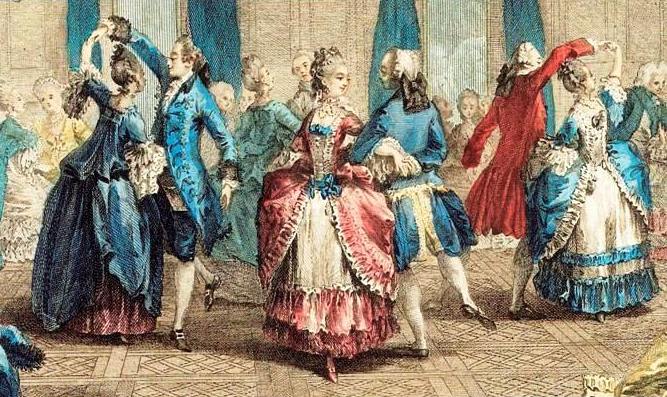
This is probably why Rousseau, when he comes to the end of the book, suggests that his protegee (and his wife) should leave the city and live in a modest cottage in the country. In his mind the city is one massive cesspit of corrupting influence, and despite all of the work in training Emile, he knew that if Emile were to remain in the city, especially Paris (where much of the politics would be played out) then all of this hard work would be undone in short time. As mentioned, Rousseau believed humanity to be corrupt, and when humans got together in large numbers then this corruption would increase exponentially.
Marriage
I wish to finish off here, namely because I found that this was probably the most unrealistic aspect of the treatise. The idea is that there will come a time when Emile will need to marry, and as such for the experiment to work Rousseau will need to find what I considered to be the perfect woman. However there is one problem:
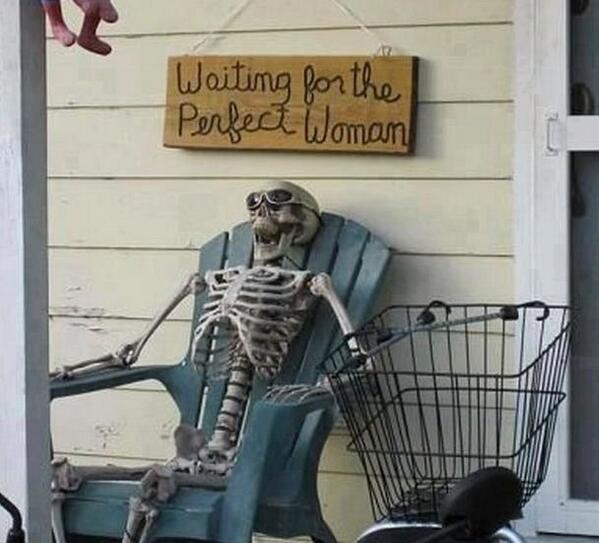
So, my big question is, did Rousseau (or even somebody later) actually put this into practice, and did the whole experiment crash and burn when it came time for Emile to marry?

 Log in with Facebook
Log in with Facebook 
